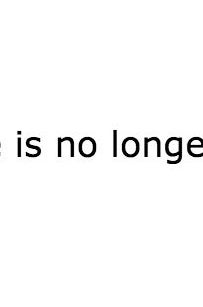
The phrase "fresh off the boat" has been a permanent fixture of American slang for several decades, living alternatingly as a slur and a derogatory statement of fact, depending on who's tossing it and where. The one thing it has never, ever been, however, is a braggadocious badge of honor, acceptable to don in the mainstream. Until now.
For the last year, Taiwanese-Chinese-American writer and restaurateur Eddie Huang has been crusading to reclaim it.
In 2013, Huang published a memoir about being the child of Taiwanese parents while growing up in the United States during the '90s. It was called Fresh Off the Boat. Shortly after that, he began hosting an online travelogue series on VICE.com, under the same audacious title. Now, a year later, a period comedy based on Huang's memoir — specifically his life as a 12-year-old who moved from Washington, D.C.'s Chinatown to a lily-white Orlando suburb — has been picked up by ABC for the network's 2014–2015 lineup. Huang will serve as a producer on the show, also of the same name. In a ballsy cultural subversion, the words "fresh off the boat" are voluntarily entering the most mainstream space in the United States.
Huang, who was born in D.C. and has lived in the United States for his entire life, has never actually been "fresh off the boat," as per its conventional definition. But Huang has neither time for, nor interest in, conventional definitions.
"I would never call myself an American," he told BuzzFeed via phone just a day after the Fresh Off the Boat trailer hit YouTube. "I'm a Taiwanese-Chinese-American. My parents came here in the late '70s and had me about three years after they'd lived in this country. So I consider myself fresh. You can't tell me to not consider myself something."
A source close to the upcoming comedy series said the title of show was Huang's choosing (and was one he fought hard for) as a nod to both the way his family was perceived when they arrived in America in the '90s, and how they saw themselves.
Fresh Off the Boat's creator and executive producer Nahnatchka Khan, herself a child of immigrant parents from Iran, was happy to support that fight. "The title certainly isn't meant to be offensive, but Eddie is who he is and he's not going to apologize for it," she told BuzzFeed. "We just took his lead."
When ABC unveiled the official trailer for Fresh Off the Boat on Tuesday, the comedy immediately sparked some heated conversations on Twitter. Comments around the forthcoming series have been a mix of hopeful and critical. The most compelling criticism was that titling a mainstream sitcom Fresh Off the Boat might normalize the term, making white Americans more comfortable with using it, not considering its origins of oppression.
I think my biggest fear for #FreshOffTheBoat is the fear that non-Asian viewers may use it as their "in" to Asian culture.
first thoughts: #FreshOffTheBoat normalizes the term. Whites will think it's acceptable to use w/o realizing historical origins @suey_park
Huang, however, disagreed with those targeting him on Twitter. "These people are bigots," he said. "There are people in every race who try to speak for everybody and try to legislate what you can think and what you can't think, with no understanding of what it means to interpret an experience. It's 'fresh off the boat.' That's a term that Asians call each other and we claim it and it's worn with pride."
Huang was also clear that the experiences depicted in the show (and the ones he shared in his autobiography) are unique to him. While Huang has been trying to "help people bridge the gap" between the East and West, he strongly believes it's important for other Asian Americans to share their own stories. "It's not enough for one person to represent us," he said. "We need many people. People are going to disagree, but, you know what? They gotta make another show."
Huang's memoir centered on dealing with the clash and counterpoints between the life his parents had created for him and the American culture he was surrounded by as a child. He told BuzzFeed that the premise of the sitcom follows the autobiography closely, aside from being "a little adjusted to fit [the studio]'s limitations."

Having his memoir adapted into a television show was the culmination of something Huang had been planning for a while. "I just want to bring my story — and my take on the Asian-American experience — to pretty much anyone who'll listen."
ABC will serve as a megaphone for that story.
The president of the network's entertainment group Paul Lee discussed the show with members of the press on Tuesday shortly after ABC's 2014–2015 schedule was unveiled and said Fresh Off the Boat — which stars Randall Park, Constance Wu, Hudson Yang, Forrest Wheeler, and Ian Chen — will "reflect the changing face of America."
"I do think it's the right thing to do," Lee said of ABC's efforts to diversify its new programming slate, which includes fellow race-centric comedies Black-ish, about a black family whose patriarch (Anthony Anderson) fears his children have become too assimilated, and Cristela, about a Mexican-American would-be lawyer who lives with her sister and brother-in-law. "It's really sizzling. It's a very, very, very distinctive voice," said Lee of Fresh Off the Boat. "We really do think ABC reflects the new face of America."
This will be the first time in two decades that an Asian-American family will take center stage on a major television network. The 1994 sitcom All-American Girl, which also aired on ABC, starred Margaret Cho and was similar to Fresh Off the Boat in terms of its intentions: to depict the everyday life of an Asian-American family. Yet the show generated harsh criticism from Asian-American communities for conflating different Asian identities while offering a lazy and inaccurate portrayal of Korean Americans.
Naturally, some potential viewers were concerned that Fresh Off the Boat would do the same, surrendering to an all too common pitfall, using the experiences of a minority group for humor but failing to productively capture any essential truths about their experiences.
Khan was quick to dismiss those fears, arguing that this story, unlike All-American Girl, is protected by its basis in reality. "We're trying to tell one kid's story and the story of the Huang family. We're just accessing his story. It happened, it's real. That Margaret Cho show was not quite her experience; it was a little more created for the actress. This will be a little more authentic, because, again, it's one kid's experience."


Huang himself remains involved with the project and will have a producer credit on the show. "The system and process [of creating sitcoms] is fucking bullshit … I was really worried about the project for a long time," Huang said, "but I have absolutely no regrets. [20th Century Fox] listened to me. All the way … This show has a very specific mission that it gets a handful of people. I told [20th Century Fox], 'If you gotta change or adjust certain things for the actors to fit our limitations, that's fine. But don't change the message.' The message is what I care about."
The author's involvement is evident in Fresh Off the Boat's pilot episode, which was made available to press on Wednesday. The show's tone and tenor carefully walk the line between irreverent comedy and self-aware commentary. The episode follows Eddie, a 12-year-old hip-hop-head, as he moves with his family from Washington, D.C., to Orlando, Fla. His adult self provides a snarky first-person voiceover to the experience, embellished with markers of race-awareness and Notorious B.I.G. lyric shout-outs. ("Me and him are two dudes with big dreams," Eddie tells his parents later in the episode. "Just tryna get some respect in the game.")
The episode is decorated in equal parts by nuanced indicators of authenticity — like Chinese-patterned plates and bowls on the dining table and a traditional jade necklace hanging around Eddie's father's neck — and surprising subversions of Asian-American stereotypes. "I was expecting something a little more exotic," a white neighbor says when Eddie's mom introduces herself. "But I love the name Jessica."
Later, when the same woman tells Eddie his English is "very good," he responds with the lethal side-eye of a kid born and raised in Washington, D.C.
That juxtaposition is intentionally specific: Huang, as Khan also stressed, wants to be clear that this is not the story of the "American" family, but of his own family.
"[A lot of people] have been saying, 'This is an American family,' and I said, 'No, this is not an American family,'" Huang explained. "America wanted nothing to do with us. This is about Taiwanese- and Chinese-American families — and you can't remove any part of that. That is what my family is … America definitely gave us the best opportunity, and that's why we're here, but we fought. We had to fight for these things."
Huang's comment appears to be in direct contradiction with an early scene in Fresh Off the Boat's '90s–set pilot, in which Eddie introduces his family as "an American family." He goes on to say that his father has completely bought in to the American dream, and that his mom was always hard on him, "way before all that tiger mom stuff."
The discrepancy in self-identification speaks to the differences between Eddie Huang, the 12-year-old character, and Eddie Huang, the 32-year-old author and chef on which he's based.
The central conflict of the pilot episode is a painfully relatable one for any child of immigration: He is tasked with figuring out which lunch table to sit at a new school. The white kids call his Chinese lunch "stinky" and a black kid calls him a "chink." It is a mission difficult enough to age Eddie 20 years in just one school day. At the end of the day, he concludes that "when you live in a Lunchables world, it's not easy being homemade Chinese food."
By the end of the episode, 12-year-old Eddie on TV sounds nearly exactly like 32-year-old Eddie who's remembering him, concluding that maybe his isn't an American family, after all. "My family is going to create a place in Orlando and we're going to do it our way," he says. "Because you don't have to pretend to be someone else in order to belong."
And that's in line with the goals Huang expressed to BuzzFeed: "I want to represent the Asian-American story, but even more than that, this is a coming-of-age story. I hate when people say 'finding your place in America' or 'fitting in' — those are assimilation words. This is about creating your place in America. It's not about fitting into one reference group, because fuck it, I'm going to make you adjust to my life."

